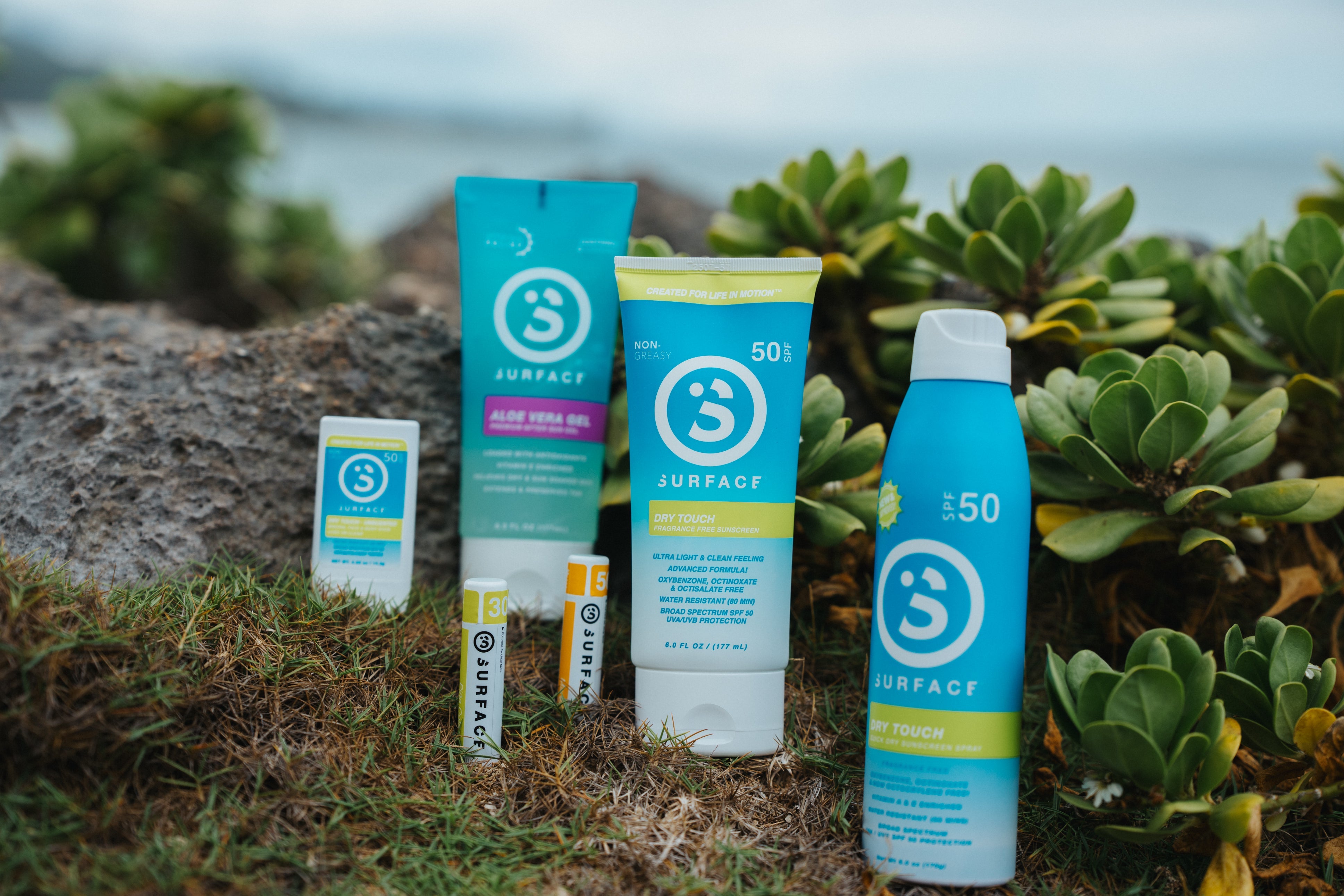Vitamin E and Sunscreen: The Perfect Combo

Vitamin E and Sunscreen: The Perfect Combo
Vitamin E is a versatile nutrient with a range of benefits for the skin. When used in topical skincare products, like sunscreens, Vitamin E can improve skin health, reduce signs of aging, and provide additional protection against the harmful effects of UV rays. The use of Vitamin E in sunscreens is becoming increasingly popular, and for good reason. UV radiation from the sun can damage the skin and cause a range of problems, from sunburn to premature aging to skin cancer. By using a Vitamin E sunscreen, you can help to reduce your risk of these issues while also improving the overall health and appearance of your skin.
One brand that recognizes the importance of Vitamin E in sun protection is Surface Sunscreen. Their products use this nutrient to enhance the effectiveness of their sunscreens and provide additional benefits to the skin. By choosing a high-quality Vitamin E sunscreen, like those from Surface Sunscreen, you can ensure that your skin is well-protected against the harmful effects of UV radiation.
In this article, we will take a closer look at the benefits of Vitamin E in sunscreens and explore how Surface Sunscreen uses this nutrient in some of its products. We will also provide tips for choosing the best Vitamin E sunscreen for your skin type and needs. By the end of this article, you will have a better understanding of the benefits of Vitamin E in sunscreens and how it can help to protect and improve your skin.

What is Vitamin E?
Vitamin E is a fat-soluble nutrient that is essential for human health. There are several different forms of Vitamin E, but the most biologically active form is called alpha-tocopherol. This nutrient acts as a potent antioxidant, protecting the body's cells from damage caused by free radicals.
Free radicals are unstable molecules that can damage the body's cells and contribute to a range of health problems, including cancer, heart disease, and Alzheimer's disease. Antioxidants like Vitamin E neutralize these free radicals, preventing their harmful effects and protecting the body's cells from damage.
Vitamin E is found in many different foods, including nuts, seeds, leafy green vegetables, and vegetable oils. It can also be taken as a dietary supplement, although most people can get enough Vitamin E through their diet alone.
When applied topically, Vitamin E can provide a range of benefits to the skin. It has emollient properties, which means that it can help to improve skin hydration by trapping moisture within the skin. When the skin is well-hydrated, it is softer, smoother, and more supple, which can help to reduce the appearance of fine lines and wrinkles.
In addition to its emollient properties, Vitamin E is also a powerful antioxidant that can help to reduce the signs of aging. Free radicals can cause damage to the skin and lead to premature aging, but Vitamin E can neutralize these molecules and prevent their harmful effects. This can help to reduce the appearance of fine lines and wrinkles, and improve overall skin tone and texture.
Vitamin E also has anti-inflammatory properties, which means that it can help to reduce inflammation and redness in the skin. This can be particularly beneficial for those with sensitive skin or conditions like rosacea or eczema. By reducing inflammation, Vitamin E can help to improve the overall health and appearance of the skin.
When used in sunscreens, Vitamin E can enhance the effectiveness of sun protection and provide additional benefits to the skin. UV radiation from the sun can cause a range of problems for the skin, from sunburn to premature aging to skin cancer. By using a Vitamin E sunscreen, you can help to reduce your risk of these issues while also improving the overall health and appearance of your skin.
In addition to its antioxidant, anti-inflammatory, and emollient properties, Vitamin E also plays a role in several other important bodily functions. It is important for the proper function of the immune system and can help to prevent blood clots by thinning the blood. Vitamin E has also been shown to reduce the risk of heart disease by preventing the oxidation of LDL cholesterol, which can lead to the buildup of plaque in the arteries.
Overall, Vitamin E is a versatile nutrient with a range of benefits for the body and skin. Whether taken orally or applied topically, Vitamin E can help to protect the body's cells from damage, improve skin hydration, reduce the signs of aging, and reduce inflammation in the skin. When used in sunscreens, Vitamin E can enhance the effectiveness of sun protection and provide additional benefits to the skin, making it an excellent choice for anyone looking to protect and improve their skin health.
Benefits of Vitamin E in Sunscreens
When added to a topical product like sunscreen, Vitamin E can provide a range of benefits to the skin. Here are some of the key benefits of using Vitamin E in sunscreen:
Enhanced UV Protection
UV radiation from the sun can cause a range of problems for the skin, from sunburn to premature aging to skin cancer. Vitamin E has been shown to enhance the effectiveness of sunscreens and provide additional protection against UV radiation. When used in combination with other sun-blocking ingredients, like Zinc Oxide or Titanium Dioxide, Vitamin E can help to reduce the risk of sunburn and other sun-related skin problems.
Improved Skin Hydration
Vitamin E has emollient properties, which means that it can help to improve skin hydration by trapping moisture within the skin. When the skin is well-hydrated, it is softer, smoother, and more supple. This can help to reduce the appearance of fine lines and wrinkles and improve overall skin texture.
Reduced Signs of Aging
Vitamin E is a powerful antioxidant that can help to reduce the signs of aging by neutralizing free radicals. Free radicals are unstable molecules that can cause damage to the skin and lead to premature aging. Vitamin E can help to neutralize these molecules and prevent their harmful effects. This can help to reduce the appearance of fine lines and wrinkles and improve overall skin tone and texture.
Reduced Inflammation
Vitamin E has anti-inflammatory properties, which means that it can help to reduce inflammation and redness in the skin. This can be particularly beneficial for those with sensitive skin or conditions like rosacea or eczema. By reducing inflammation, Vitamin E can help to improve the overall health and appearance of the skin.
Surface Sunscreen: A Leader in Vitamin E Sun Protection
Surface Sunscreen is a leading brand that recognizes the benefits of Vitamin E in sun protection. They use Vitamin E in some of their products to enhance the effectiveness of their sunscreens and provide additional benefits to the skin.
One of their most popular products, the Surface Dry Touch Sunscreen SPF 30, contains Vitamin E as well as other nourishing ingredients, such as Aloe Vera, to provide complete sun protection and improve skin health. This sunscreen provides broad-spectrum protection against both UVA and UVB rays, and it is non-greasy, fast-absorbing, and water-resistant for up to 80 minutes.
In addition to their Active Sunscreen, Surface also offers a range of other sun protection products, including a mineral-based sunscreen powder, a sport sunscreen spray, and a tinted sunscreen for the face. All these products contain Vitamin E to provide additional benefits to the skin, beyond basic sun protection.
How to Choose a Vitamin E Sunscreen
When choosing a Vitamin E sunscreen, there are a few things to keep in mind. Here are some tips to help you make the best choice:
Look for a Broad-Spectrum Sunscreen
Make sure to choose a sunscreen that provides broad-spectrum protection against both UVA and UVB rays. UVA rays can penetrate deep into the skin and cause long-term damage, while UVB rays cause sunburn and immediate damage.
Consider Your Skin Type
If you have oily skin, look for a lightweight, non-greasy sunscreen that won't clog your pores. If you have dry skin, choose a sunscreen that contains hydrating ingredients, like Vitamin E or Aloe Vera, to keep your skin moisturized and soft.
Check the Ingredients
Make sure to read the ingredients list carefully to ensure that the sunscreen contains the nutrients you want, like Vitamin E, as well as other beneficial ingredients, like Aloe Vera or Green Tea Extract.
Choose a Reputable Brand
Choose a sunscreen from a reputable brand that uses high-quality ingredients and has a good reputation for sun protection.
Conclusion
Vitamin E is a potent antioxidant that can provide numerous benefits to the skin, especially when used in sunscreens. Vitamin E can enhance UV protection, improve skin hydration, reduce signs of aging, and reduce inflammation. Surface Sunscreen is a leading brand that uses Vitamin E in some of its products to provide additional benefits to the skin. By choosing a high-quality Vitamin E sunscreen, you can protect your skin from sun damage while also improving its overall health and appearance.





